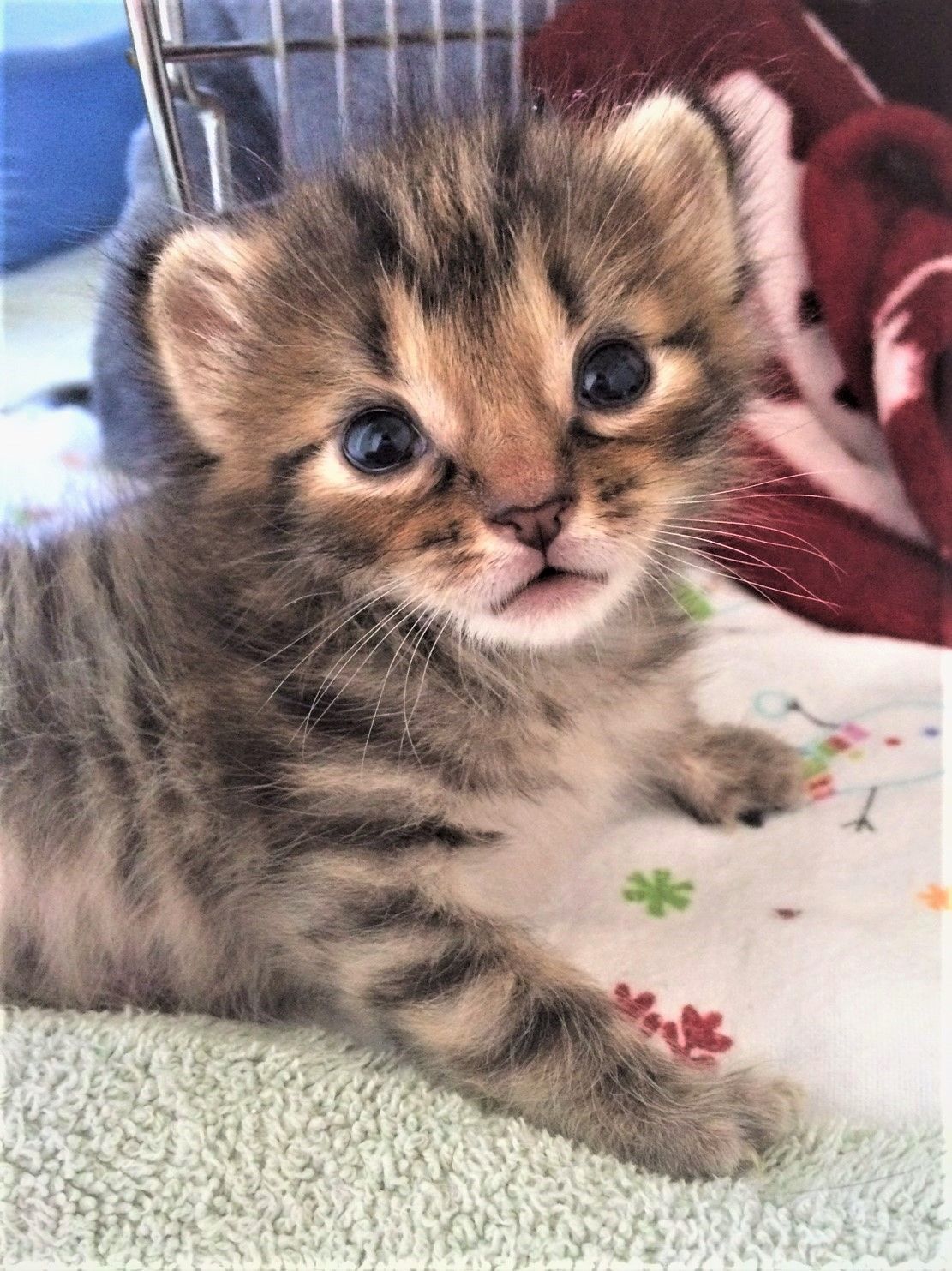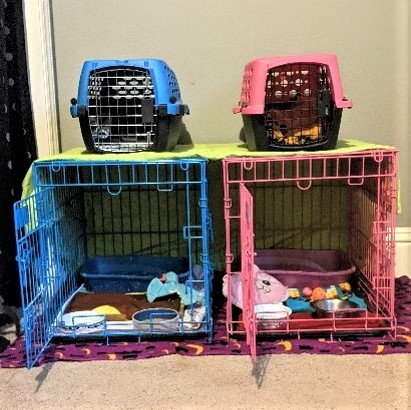
When caring for a foster kitten, the first thing that needs to be determined is the kittens age, as that will determine the proper route of care. If a kitten weighs less than one pound but their eyes are open, they may or may not eat on their own. Typically, with a kitten this size, we will offer them some kitten formula wet food mixed with some kitten formula milk replacement. If they are capable of eating on their own, they usually gobble it up! The key to knowing whether eating will be successful or not is typically if they are holding their head up high. This is usually a sign they are balanced enough to be able to put their head down into a bowl.
If they cannot eat on their own, then they will need to be bottle fed until they are old and strong enough. If there is no mother available to nurse and a kitten has come in with their eyes still closed or barely open, then they will absolutely need bottle fed every few hours.
Of course, if you are fostering a kitten that is old enough to eat on their own, mobile, and independent, then it’s as easy as offering them wet and dry kitten food.
Once a feeding method and schedule has been determined, the next point of care is litter box habits. Some smaller kittens will struggle with the litter box at first. This is where a knowledgeable foster comes in handy! There are many litter training methods that can be utilized, and I personally have had great success using kitten attract litter. This litter is specially formulated for kittens with materials and scents designed to attract them to the litter box. Once they’ve visited the litter box enough times, they naturally pick up on what needs to be done there.
There are cases where they may need some extra guidance and patience. If you have a bottle baby on your hands, they will not use a litter box. In fact, they are not even capable of urinating or defecating on their own. With a kitten that small, they still need help from mom or you. Their genitalia will need to be gently rubbed in circular motions with a wet cloth, mimicking a mother’s tongue, to stimulate urination and defecation.
The final step is how to house! If you do not have a safe, separate room to house them, older kittens can be kept in a small dog crate. (See the photo for an example!) For kittens who are being bottle fed, a cat carrier, plush blanket, and a heating pad is all you really need. Heating pads are essential for small, young kittens as they are not capable of producing enough body heat on their own.

For more information on fostering or to apply to become a YCSPCA foster, click here.
If you are not in the position to foster but would like to support the lifesaving efforts of our kitten fosters, please consider donating to our kitten shower. Kittens who become separated from their mother so young cannot survive on their own. They rely on fosters to act as their mothers until the kitten is old and healthy on their own in a home. And our fosters rely on the kindness of supporters like you.








